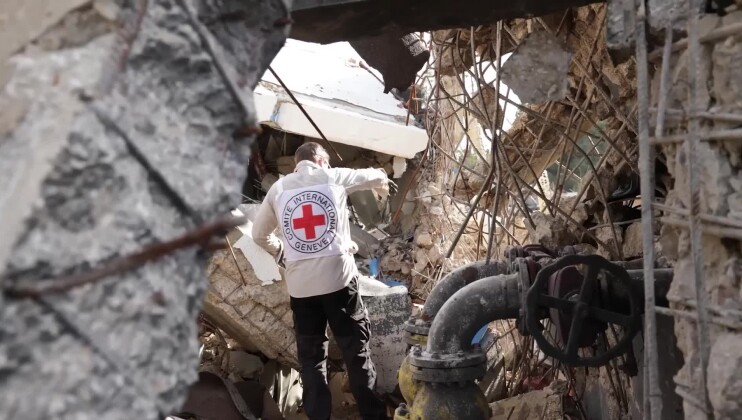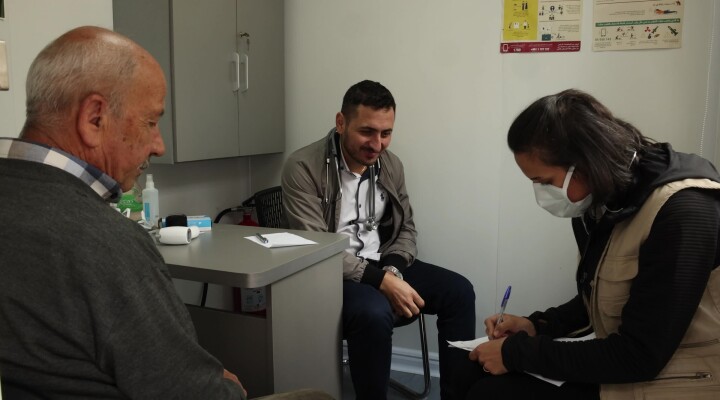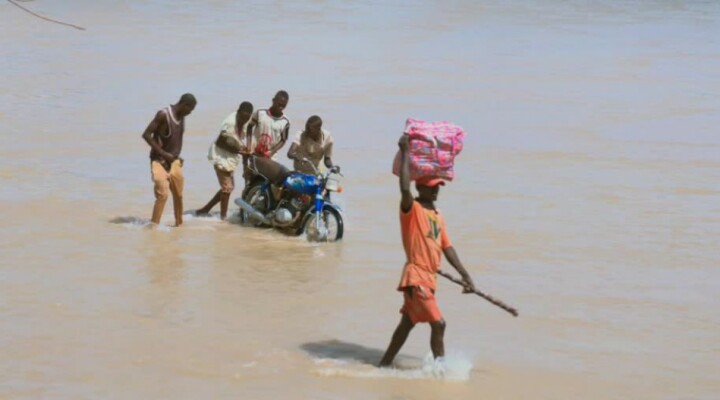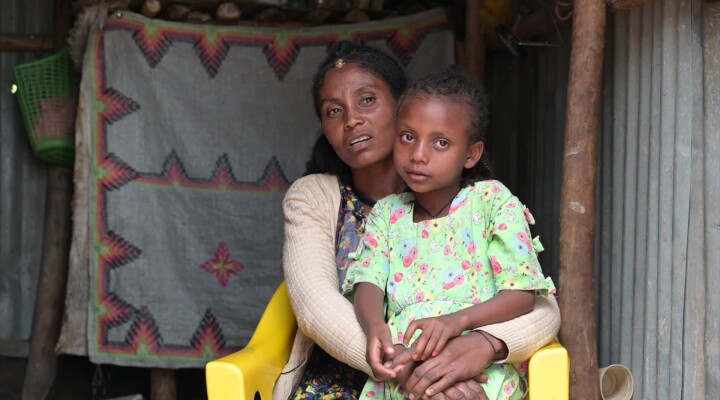Iraq: Massive Challenges Prevent Iraqis From Returning Home, ICRC President Says
Baghdad/Geneva (ICRC) – Rebuilding Iraq’s social fabric is key to ensuring that the country can leave its violent past behind, the president of the International Committee of the Red Cross (ICRC) said during a four-day visit to the country, which included Mosul, Baghdad and Erbil.
ICRC President Peter Maurer highlighted the extraordinary challenges that communities across the country continue to face, including the fact that 1.8 million people remain displaced within Iraq more than a year after major combat operations ended, with nearly one in three still living in camps.
“The magnitude of the destruction in Iraq doesn’t get any less shocking, but what’s less visible are the social scars that run deep in Iraq today,” Mr Maurer said.
“If Iraq is to get back on its feet, then society must work towards reconciliation. Within that process, safe and voluntary returns without discrimination for all displaced Iraqis who wish to go back to their homes need to be ensured.”
Mr Maurer added that conditions must be right for people to return home and stressed the significant ongoing humanitarian needs for the population at large.
“The returns process cannot be rushed,” he said. “People need adequate housing and basic services, including drinking water and health care, as well as livelihood opportunities, security and the clearance of unexploded ordnance.”
Referencing the crucial reconciliation process, Mr Maurer highlighted the need for judicial processes and dignified conditions of detention to be applied equitably to all detainees irrespective of the charges they face or their country of origin.
He also drew attention to the critical need to clarify the fate of the large number of people still missing, which are from decades of different rounds of conflict and thought to be in the hundreds of thousands.
“Those who are missing loved ones must get the answers they need,” he said. “In Mosul I met families searching for their sons, fathers and husbands. They told me of the daily emotional agony of not knowing what happened to their relatives. Iraqi society – and its authorities – need to tackle these emotional issues head-on.”
For all of the immense destruction still visible in Mosul, there are some hopeful signs of a return to normal life. Mr Maurer said: “People are clearing their homes of rubble and have even opened shops in the most damaged western part of the city, and that’s testimony to the resilience of the Iraqi people.”
During his 1-4 February visit, Mr Maurer met with Prime Minister Adel Abdul-Mehdi, President Barham Salih, Deputy Prime Minister Fouad Hussein, and Speaker of Parliament Mohammed al-Halbousi, and expressed the ICRC’s commitment, alongside its partners in the Iraqi Red Crescent Society, to continue to assist the Iraqi people during the current recovery phase following multiple cycles of violence and uncertainty.
In 2018, the ICRC in Iraq:
· helped over 2.5 million people gain better access to safe water by rehabilitating 47 water systems.
· provided food parcels to 340,000 people, essential household items to 275,000 people, and cash assistance to 120,000 people.
· contributed to more than 300,000 consultations at 17 ICRC-supported Primary Health Care Centres and 2 ICRC-supported hospitals.
· helped clarify the whereabouts of over 1,050 missing persons, and opened 5,250 new requests to search for missing people.
· provided physical rehabilitation services to more than 39,400 people with disabilities at the ICRC-run centre in Erbil and 15 ICRC-supported centres.
· visited more than 54,000 detainees in 91 places of detention and helped restore or maintain family contacts, including for detainees, by distributing 28,420 written and oral messages.
For more information, please contact the following spokespeople:
Nagham Awada, Baghdad: +964 790 191 6927, nawada@icrc.org
Sarah Al-Zawqari, Beirut: +961 313 83 53, salzawqari@icrc.org
Sam Smith, Geneva: +41 79 217 32 10, ssmith@icrc.org
SHOTLIST
Filming Date: 02.02.2019
Location: Iraq/Ninveh Governorate/Mosul
Camera: Ibrahim Sherkhan
0:00 Various of children
SOUNDBITE (in English) ICRC president Peter Maurer:
0:08
Thought the streets of the old town of Mosul here, I’m really shattered by the extent of the destruction. Talking to the families I see how destructive this war has been. Many have been killed, many have been displaced, many are missed and it is difficult for the families to restart their lives.
0:36
On the other hand we see in the midst of the rubble, people start to regain their lives, to start businesses, to try to have some income, to send the children back to school and in that sense, it is also an encouraging experience here to see the enormous resilience of people who come back and restart their lives.
1:08
I think what needs to happen now is much more investment in reconstruction in the basic reconstruction. State and local communities have to invest in the water systems sanitation’s systems into bringing electricity back to people. Hopefully then people can also come back to their professions to the markets and create incomes for families
I was impressed a minute ago to talk to shopkeepers with grants and cash from icrc they can now feed their families and customers are coming back. I think all these things together are important. Maybe even more important is that those divided communities can reconcile and come back to a more normal life. A lot of animosity is here of course because of the killing, because of the destruction, because of the disruption and reconciliation is certainly as important as reconstruction.
2:35 driving shots of destruction
4:20 various of Maurer in the old city meeting people who have benefitted from ICRC grants for small businesses
End 10:25



